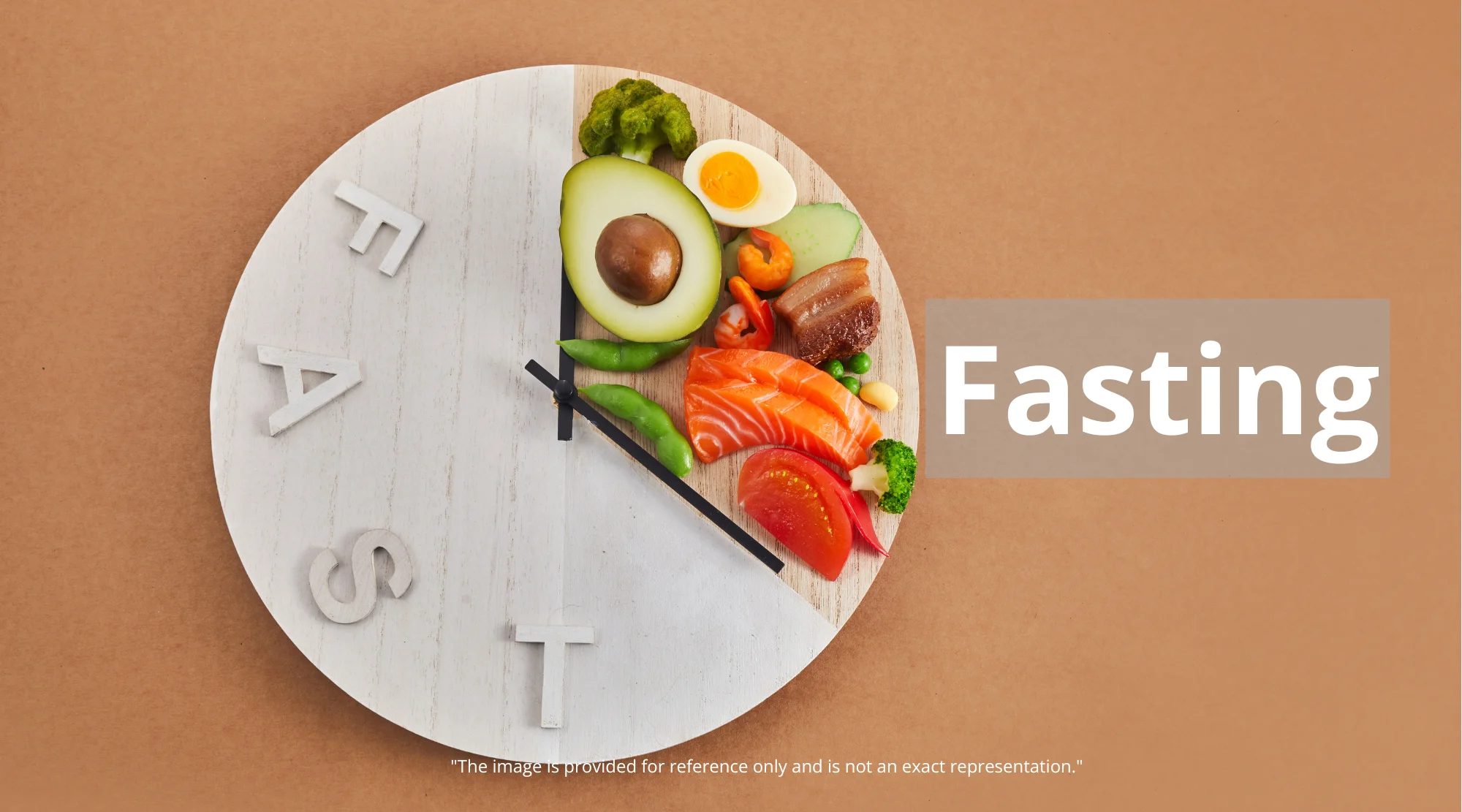Intermittent Fasting and Heart Health: Rethinking the Risks and Rewards
Intermittent fasting (IF) has become a popular dietary approach, promising a range of health benefits from weight loss to improved metabolic function. However, a recent large-scale study has cast a shadow over its perceived advantages, particularly concerning its impact on cardiovascular health. This article will delve into the latest research, exploring the potential risks associated with time-restricted eating and providing a balanced perspective on this increasingly common lifestyle choice. Understanding the nuances of intermittent fasting is crucial for making informed decisions about your health.

The Study: Unveiling Cardiovascular Risks
The groundbreaking study, published in Diabetes & Metabolic Syndrome: Clinical Research and Reviews, analyzed data from over 19,000 adults in the United States. Researchers meticulously tracked participants’ eating patterns over an extended period, typically eight years. The primary focus was to assess the association between time-restricted eating and cardiovascular disease (CVD), which includes conditions like heart attack and stroke.
The findings were striking. Individuals who confined their eating window to less than eight hours per day exhibited a significantly higher risk—a staggering 135% increase—of dying from cardiovascular disease compared to those who consumed food over a 12-14 hour window. This elevated risk persisted across various demographic groups, including age, sex, and lifestyle, even after accounting for factors like diet quality, meal frequency, and other lifestyle choices. The study’s results raise serious questions about the safety of highly restrictive eating schedules.
Deeper Dive: Exploring the Data and Its Implications
The study’s findings are not without their complexities. While the link between time-restricted eating and cardiovascular mortality was pronounced, the connection to overall mortality (death from any cause) was less clear and consistent. This observation prompts crucial questions about the mechanisms at play. Why would a restrictive eating window appear to increase the risk of heart-related deaths without a similar impact on overall mortality?
One possibility is that the eight-hour eating window may lead to nutritional deficiencies, potentially exacerbating existing health issues. It’s also possible that the specific food choices made during the eating window play a crucial role. The study’s authors emphasize that this research does not prove cause and effect, but rather, highlights a strong association.
It’s essential to remember that diet is a major factor in both diabetes and heart disease. This is why an association with higher cardiovascular mortality is not entirely unexpected. The real surprise from this study is that a shorter eating window, of fewer than eight hours over many years, was linked to an increased risk of death from cardiovascular disease.
Potential Mechanisms: How Could Intermittent Fasting Impact the Heart?
The exact reasons behind the increased cardiovascular risk are still under investigation. However, several potential mechanisms have been proposed:
- Nutrient Deficiencies: Restricting the eating window too severely may lead to inadequate intake of essential nutrients.
- Metabolic Stress: The body might experience prolonged periods of metabolic stress, particularly if the fasting period is not carefully managed, influencing blood sugar levels and potentially leading to insulin resistance.
- Muscle Loss: Prolonged fasting can lead to the loss of muscle mass if not combined with strength training. This can negatively affect metabolism and overall cardiovascular health.
- Changes in Eating Habits: Individuals may overcompensate during their eating window, consuming excessive calories and unhealthy foods, which could then be linked to increased risks of CVD.
It is important to note that these are hypotheses, and further research is needed to fully understand the biological pathways involved.
Who Should Be Most Cautious? High-Risk Groups
The study revealed that certain groups of individuals appeared to be particularly vulnerable to the potential risks associated with a short eating window. Smokers, individuals with diabetes, and those with existing heart conditions displayed the strongest association with increased cardiovascular mortality. These findings suggest that these individuals should approach time-restricted eating with extreme caution and consult with a healthcare professional before making any significant dietary changes.
It’s worth remembering the links between the development of diabetes and heart disease, and it’s important to be aware that lifestyle, health and other underlying medical issues will have a huge impact on how this type of eating pattern affects you.
Beyond the Headlines: What This Study Doesn’t Tell Us
It is vital to interpret this research within the context of its limitations. The study does not provide definitive proof that time-restricted eating causes cardiovascular disease. It reveals an association, not a causal relationship. The study relied on participants’ self-reported dietary recalls. This method can be prone to inaccuracies, which is a potential source of bias.
Furthermore, the study did not account for the specific types of food consumed during the eating window, which is a critical factor in determining overall health outcomes. The research also didn’t differentiate between individuals who had the underlying health conditions and other lifestyle risk factors such as whether or not they smoked.
Intermittent Fasting: Benefits and Concerns
Intermittent fasting has gained popularity due to its reported benefits, including:
- Weight Loss: By reducing the total calorie intake and improving metabolic function.
- Improved Insulin Sensitivity: Potentially improving blood sugar control.
- Cellular Repair: Some studies suggest it promotes autophagy, a process that removes damaged cells.
- Convenience: Simplifying meal planning by compressing the eating window.
However, along with these potential benefits come concerns:
- Nutritional Deficiencies: Inadequate intake of essential nutrients, especially if not planned carefully.
- Muscle Loss: A risk if not combined with adequate protein intake and exercise.
- Disordered Eating: It can trigger or exacerbate unhealthy eating behaviors.
- Inconsistent Results: Research on IF is still emerging, and results vary depending on the specific protocol and individual.
- Potential for Social Isolation: Restricting the timing of meals can make it difficult to participate in social activities.
Making Informed Choices: Considerations and Recommendations
If you are considering incorporating intermittent fasting into your routine, here are some essential steps to take:
- Consult a Healthcare Professional: It’s crucial to discuss your plans with a doctor or registered dietitian, especially if you have any underlying health conditions.
- Choose a Sustainable Approach: Select a fasting protocol that aligns with your lifestyle and is easy to maintain long-term.
- Prioritize Nutrient-Dense Foods: Focus on whole, unprocessed foods during your eating window.
- Stay Hydrated: Drink plenty of water throughout the day.
- Listen to Your Body: Pay attention to how your body feels and adjust accordingly. If you experience adverse symptoms, stop immediately.
- Exercise Regularly: Incorporate regular physical activity into your routine, including strength training to preserve muscle mass. Want some inspiration to start? Read about how one person overcame obstacles and transformed themselves through fitness in “From Despair to Champion: How Monica’s Transformation Redefined Fitness & Life”: https://befullbehealth.com/2025/from-despair-to-champion-how-monicas-transformation-redefined-fitness-life/
- Avoid Extreme Restrictions: Avoid very short eating windows, especially if you’re at high risk for cardiovascular disease.
- Monitor Your Health: Regularly monitor your blood pressure, cholesterol levels, and other relevant health markers.
Beyond the Diet: Embracing a Holistic Approach
While intermittent fasting can be a component of a healthy lifestyle for some individuals, it is not a magic bullet. It should be viewed as part of a comprehensive approach that includes:
- Balanced Diet: Emphasizing whole, unprocessed foods, including fruits, vegetables, lean proteins, and whole grains. For more information, check out “Unlock Your Youth: Top Foods for Naturally Radiant Skin & Energy”: https://befullbehealth.com/2025/unlock-your-youth-top-foods-for-naturally-radiant-skin-energy/.
- Regular Exercise: Engaging in both cardiovascular exercises and strength training. You can see the benefit with a 20-minute workout, with “20-Minute Power Yoga: Energize Your Mornings With This At-Home Workout”: https://befullbehealth.com/2025/20-minute-power-yoga-energize-your-mornings-with-this-at-home-workout/.
- Adequate Sleep: Prioritizing sufficient rest, as sleep is crucial for overall health. Read more in “The Power of Sleep: Why Prioritizing Rest is Crucial for Your Health”: https://befullbehealth.com/2025/the-power-of-sleep-why-prioritizing-rest-is-crucial-for-your-health/.
- Stress Management: Implementing stress-reducing techniques, such as mindfulness and meditation. Learn how to “Master Stress: Proven Strategies for a Calmer, Healthier You”: https://befullbehealth.com/2025/master-stress-proven-strategies-for-a-calmer-healthier-you-be-full-be-health/.
- Regular Medical Check-ups: Seeking regular check-ups and screenings to monitor your health.
A holistic approach to wellness involves addressing all aspects of your health, not just diet.
Rethinking Fasting: A Balanced Perspective
The recent research highlights the importance of a nuanced approach to intermittent fasting. While it may offer certain benefits, it’s crucial to consider potential risks, particularly for individuals with cardiovascular disease or other health concerns. It’s best to consult with a healthcare professional to determine the best approach for you.
The study’s findings do not invalidate intermittent fasting but should prompt a reevaluation of the potential downsides, especially for individuals at risk. It’s essential to emphasize the importance of individualized approaches, with the goal of promoting overall health and well-being.
If you’re keen to start adding physical activity to your routine, explore our article on “Exercise & Gut Health: How Physical Activity Transforms Your Gut Microbiome”: https://befullbehealth.com/2025/exercise-gut-health-how-physical-activity-transforms-your-gut-microbiome/. For a more comprehensive guide to building a healthy lifestyle, explore “Mastering Fitness: Your Complete Guide to Building a Healthy Lifestyle”: https://befullbehealth.com/2025/mastering-fitness-your-complete-guide-to-a-healthy-lifestyle/.














1 comment